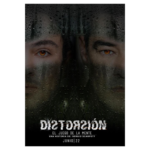- Portada
- Nacional
- Internacional
- Economía
- Cultura
- Social
- Deportes
- Formación y Empleo
- Ciencia
- Salud
- Columnistas
- A falta de sol
- A levante y a poniente
- A pie cambiado
- A pie de página
- Anda que…
- Arsenal de Letras
- Aves de paso
- Baldosas amarillas
- Biblioteca con galga
- Boomerang
- Cara América
- Causas, azares y luchas
- Confesiones de una madrileña de adopción
- Desde mi montaña mágica
- Desde Munich con jamón
- El Centinela
- El niño en el árbol
- El observador
- Entre cuervitos y zopilotes
- Generación de chicle
- La bitácora del emperador
- La cortina de humo
- La incubadora
- La columna de Sebastián
- La pura verdad y otras mentiras
- Luces y sombras de los unicornios
- Madre no hay más que una (pero con muchas cosas que hacer)
- Malos tiempos para la lírica
- México duerme
- Memorias de un transfuguista épico
- De este blog no viviré
- Ropa tendida
- Paseando por Ohlsdorf
- La reina tuerta
- Más allá de Oriente y Occidente
- Transiberiano Chamberí
- Pido la palabra
- Sedición Internacional
- Separación de males
- El mirador discreto
- Reflexiones en la era tecnológica
- Serie B
- Vespertino
- A buenas horas
- Truchas de gasoil
Portada » Cultura » How does wave-particle duality explain the behavior of light and matter?
How does wave-particle duality explain the behavior of light and matter?
Por Olga Navarro , 28 septiembre, 2024
Wave-particle duality is a fundamental concept in quantum mechanics that describes how light and matter can exhibit both wave-like and particle-like behavior, depending on how they are observed.
Wave-Like Behavior
Interference and Diffraction: Light behaves like a wave when it passes through slits or barriers, creating patterns of constructive and destructive interference. This is famously demonstrated in the double-slit experiment, where light forms an interference pattern on a screen.
Wavelength and Frequency: Light, electrons, and other particles have wave properties like wavelength and frequency, described by de Broglie’s equation:
λ=hp
λ=ph where λλ is wavelength, hh is Planck’s constant, and pp is momentum.
Particle-Like Behavior
Photoelectric Effect: Light behaves as a stream of particles (photons) when it interacts with matter, as shown in the photoelectric effect. Einstein explained that photons have quantized energy E=hfE=hf, where ff is frequency.
Scattering: In experiments like the Compton effect, photons collide with particles such as electrons, behaving like discrete particles with momentum.
Unified Explanation
Dual Nature: The behavior depends on the experimental setup. For instance:
In diffraction experiments, light shows its wave nature.
In photoelectric experiments, it demonstrates its particle nature.
Matter as Waves: Even particles like electrons and atoms exhibit wave properties under certain conditions, such as interference patterns in electron diffraction experiments.
Wave-particle duality bridges classical and quantum physics, highlighting that light and matter don’t fit neatly into traditional categories of «waves» or «particles» but instead exist as quantum objects with properties of both. DQ0 DQ0 DQ0 DQ0 DQ0 DQ0 DQ0 DQ0 DQ0 DQ0












![Entrevista con el hombre [hu]eco: Gonzalo Salesky Entrevista con el hombre [hu]eco: Gonzalo Salesky](https://elcotidiano.es/wp-content/themes/advanced-newspaper/timthumb.php?src=https%3A%2F%2Felcotidiano.es%2Fwp-content%2Fuploads%2F2015%2F02%2FGONZALO-SALESKY.jpg&q=90&w=35&h=35&zc=1)


Comentarios recientes